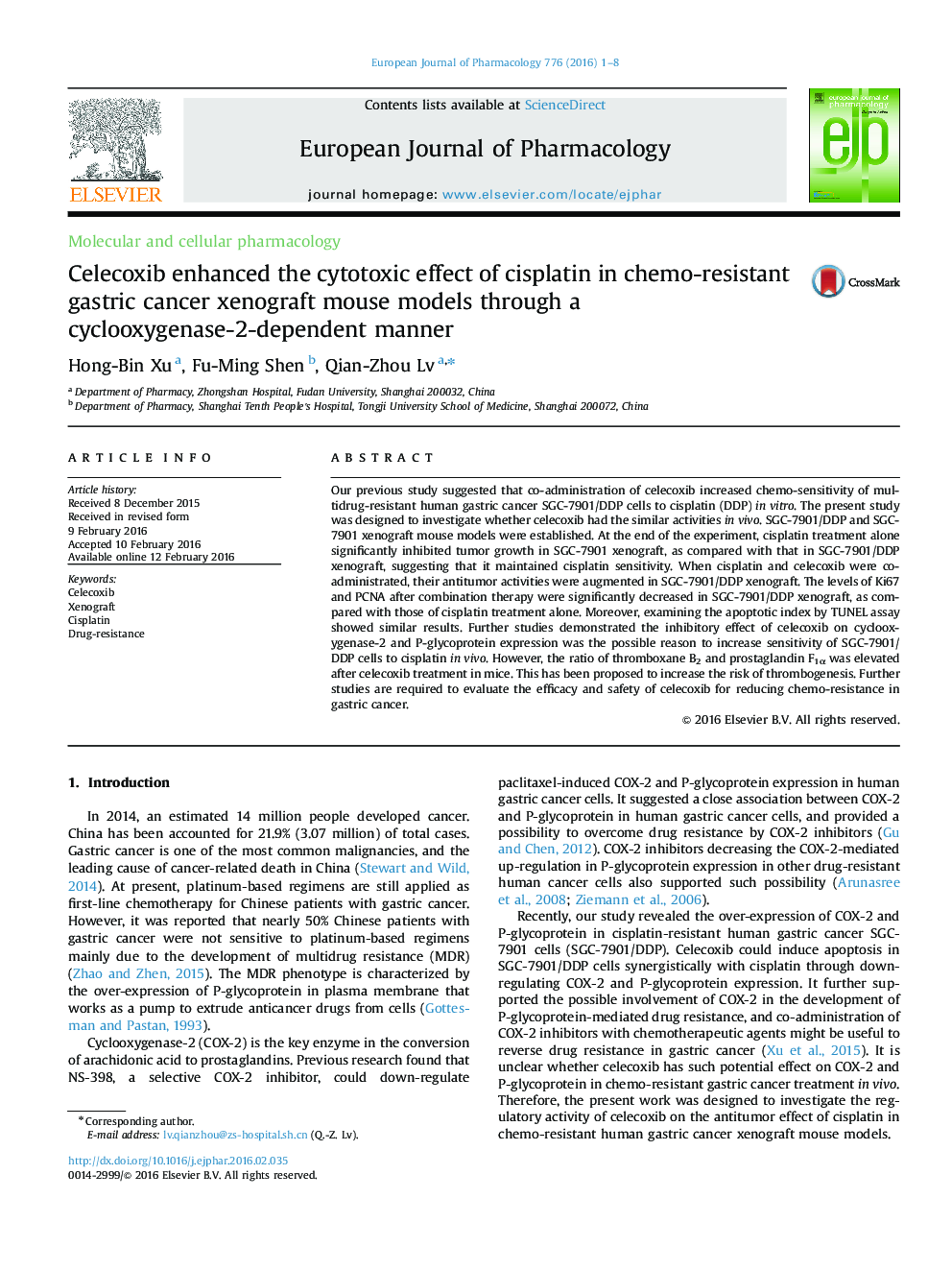| Article ID | Journal | Published Year | Pages | File Type |
|---|---|---|---|---|
| 2531096 | European Journal of Pharmacology | 2016 | 8 Pages |
Our previous study suggested that co-administration of celecoxib increased chemo-sensitivity of multidrug-resistant human gastric cancer SGC-7901/DDP cells to cisplatin (DDP) in vitro. The present study was designed to investigate whether celecoxib had the similar activities in vivo. SGC-7901/DDP and SGC-7901 xenograft mouse models were established. At the end of the experiment, cisplatin treatment alone significantly inhibited tumor growth in SGC-7901 xenograft, as compared with that in SGC-7901/DDP xenograft, suggesting that it maintained cisplatin sensitivity. When cisplatin and celecoxib were co-administrated, their antitumor activities were augmented in SGC-7901/DDP xenograft. The levels of Ki67 and PCNA after combination therapy were significantly decreased in SGC-7901/DDP xenograft, as compared with those of cisplatin treatment alone. Moreover, examining the apoptotic index by TUNEL assay showed similar results. Further studies demonstrated the inhibitory effect of celecoxib on cyclooxygenase-2 and P-glycoprotein expression was the possible reason to increase sensitivity of SGC-7901/DDP cells to cisplatin in vivo. However, the ratio of thromboxane B2 and prostaglandin F1α was elevated after celecoxib treatment in mice. This has been proposed to increase the risk of thrombogenesis. Further studies are required to evaluate the efficacy and safety of celecoxib for reducing chemo-resistance in gastric cancer.
